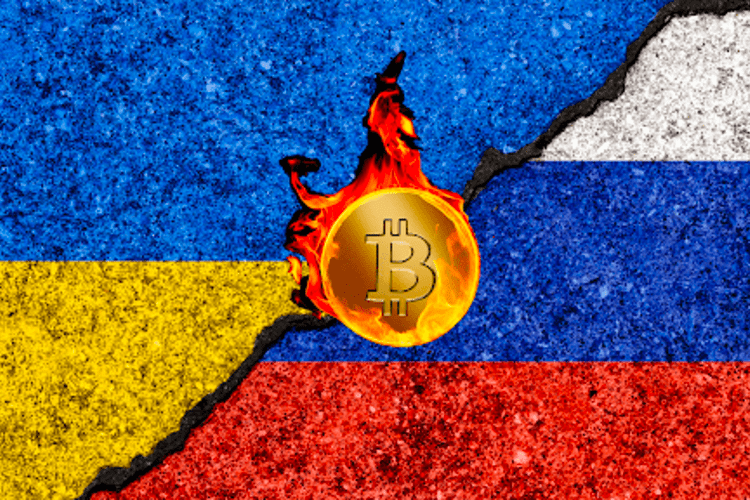Russian-Ukranian Conflict Makes the Clamour For Crypto Regulation Louder

The clamour for regulations in the cryptocurrency space have been getting more attention in recent months due to the Russian-Ukrainian conflict. To support the Ukrainian course, the Ukrainian President asked for financial help from the public. The response was overwhelming – about $60 million in crypto have been collected, reportedly. These financial supports were received within minutes after they were sent by the donors.
The support for Ukraine is reminiscent of what protesters in Nigeria got during the #ENDSARS protest in the country. The international support was massive during the protests, many of them sending their donations through cryptocurrency.
Here is another example – a computer programmer, which was trapped in Ukraine when the war started. The banks were shut down, and there was no way for him to move his assets and fund his relocation from Ukraine. But because cryptocurrency has no borders, he was able to move his family to Poland, from where he now helps refugees settle in.
However, cryptocurrencies are also being used by oligarchs and government officials which are moving their wealth through cryptocurrency, and getting financial help from allies – countries and individuals.
This is the nature of a neutral financial system that doesn’t hold any prisoners. Whether it’s a cryptocurrency built on the Ethereum or Solana blockchain, or one which can be followed by the btc block explorer, cryptocurrencies are designed to allow everyone, irrespective of state or status, have access to the distributed ledger.
Democratisation of finance has a lot of benefits, but without checks and balances, like every other system in the world, can be used for evil. The solution that some people have proffered is to have a crypto community of autonomous people manage the governance of cryptocurrency projects. The idea behind an autonomous crypto community is so that the interest of all is handled by people, all of whom are autonomous.
The Kilma crypto token is an example of a successful DAO-led project, while the LUNA debacle is a typical example of a failed project that used this model. Recent history with such closed groups doesn’t offer much solution to the problem of neutrality becoming the poisoned chalice. The problem seems to be getting worse.
Although the cryptocurrency space has kicked against regulations in the space, many prefer the ‘wild wild west’ system of cryptocurrency. However, the space needs some forms of regulations. First, to increase its adoption, and second, to provide some level of safety for investors and traders. For the second, there are safe and secure exchanges like Redot.
And the regulations are coming, even slowly. Have you tried opening a cryptocurrency account with any of these crypto exchanges? The process you have to go through are becoming more stringent. They’re demanding more validation, especially the centralized exchanges (Yes, decentralized exchanges favor anonymity, but the signs are clear that even DeFi will go through some form of transition caused by regulations).
Also, cryptocurrency exchanges have been vocal about the use of cryptocurrencies to escape financial sanctions from the government. Russian officials reportedly used cryptocurrency to evade sanctions – as well as people being tried for shady financial deals. In the United States, a group of democrats wrote to the Treasury Secretary Janet Yellen. In their letter, they expressed concern with individuals using cryptocurrencies to avoid sanctions and carry out shady deals.
The CEO of Binance, Chanpeng Zhao, said that people will always find ways to circumvent the regulations and avoid sanctions. According to him, people have been dodging sanctions since before crypto, using diamond, gold, and other stores of value. The truth remains that cryptocurrency still has a long way to go to become a flawless currency many hope it’ll be. The system will not be perfect (Might never be perfect – is any system in the world even perfect?). But with iterations and a decision to stand on a moral ground that supports the downtrodden, cryptocurrency will be used more for good than for evil. In a world that is plagued with so many morally bankrupt people and systems, hopefully, cryptocurrency can shine the light and bring hope to refugees in the world, or give protesters in India reason to keep fighting for their rights.